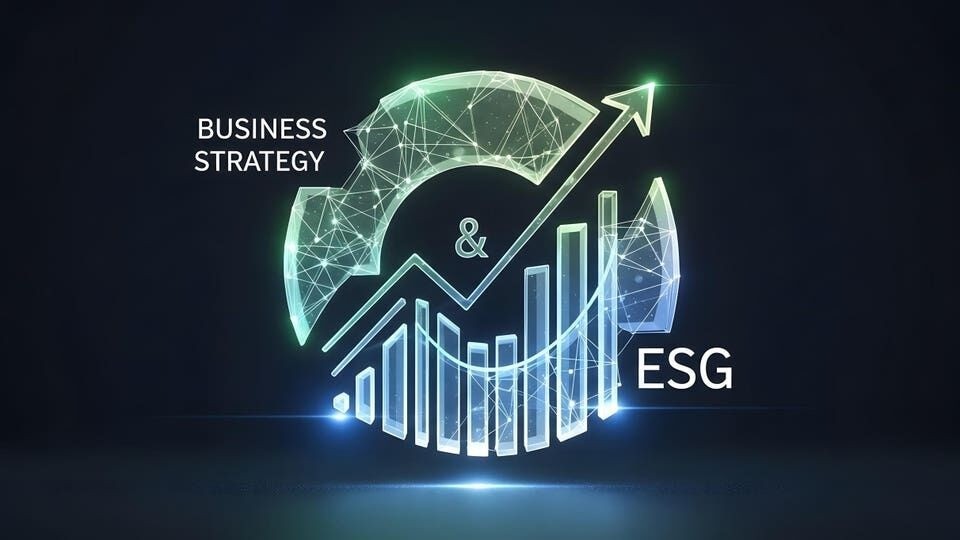The Importance Of Data Literacy And Data Storytelling
10 October 2022
Data is the fuel that runs the fourth industrial revolution, and knowing how to work with data is more important than ever for employees at many organizations.
The value of data literacy is continuing to increase in companies all over the world. Forrester’s research predicts that 70% of employees are expected to work heavily with data by 2025 — up from just 40% in 2018. It’s clear that organizations that build data literacy into their workplace culture will gain a competitive edge in our increasingly complex global economy.

Recently, I had a conversation with Mark Nelson, President and CEO of Tableau, Salesforce’s data visualization platform. We talked about the importance of data literacy and data storytelling, and why these are critical skills people need to get ready for the future of work.
What Is Data Literacy?
According to Mark, the definition of data literacy is “the ability to explore, understand and communicate with data.” But he expanded that definition and said data literacy also includes:
- Working with, interpreting, and making decisions with data
- Conveying data’s significance and value to others
- Understanding the world around you using data
- The ability to capture, store, and process data
- Knowing how to use data and get meaning from it
Companies Aren’t Providing Necessary Training
Tableau commissioned Forrester Consulting to survey over 2,000 managers and employees about the importance of data literacy in their organizations. Forrester reported that organizations that invest in data literacy and upskilling experience benefits like higher productivity, increased innovation, and better customer and employee experiences.
Although the vast majority of survey participants believe basic data literacy is the most important skill for success in today’s workplace, there are some discrepancies about whether companies adequately train employees. Specifically, 82% of leaders expect all employees to have basic data literacy, and 79% of leaders say teams are equipping workers with critical data skills — but only 40% of employees say they are being provided with the data skills their employers expect.
This Forrester survey indicates the enormous need for data skills training. Today’s organizations must focus on upskilling and reskilling their workers — and those that don’t will fall behind their competitors.
Companies that want to empower their employees to become data literate will need to not only provide data training but also instill a data-driven culture from top to bottom in their organizations.
How to Tell Stories with Data
"Data storytelling is the ability to distill data down to the insights you want and present those insights as a story," Mark says. "Not everyone can speak the language of data, so you need to make data speak the language of everyone else. Putting data in context is the key to making it accessible."
Going beyond just facts, figures, and dashboards, data can tell companies what problems they're facing and lead them step by step, to insights and conclusions.
Mark adds, "Just like a story, you have a climax, a conclusion, and a result at the end of the story — and telling stories with data helps you come to those important insights."
Tableau recently launched a feature called Data Stories, which leverages natural language and artificial intelligence capabilities to automate data analysis and communicate insight using easy-to-understand story formats. Data Stories aims to “democratize data” and help everyone use data to make meaningful decisions.
With automated plain-language explanations right in Tableau dashboards, customers can understand and interact with data more quickly and easily. This new feature will help companies address data literacy gaps by automating the process of creating data-driven stories.
“[The Data Stories feature] doesn’t require you to have deep technical skills to really start diving in and making sense of data,” Mark says. “We're incredibly excited about how this can help users and customers get to the value of data faster.”
How This NFL Team Discovered the Secret to Keeping Their Fans Happy
Mark shared one of his favorite stories about a Tableau customer who is using data to drive business performance. The Seattle Seahawks are measuring fan experiences as the fans attend football games, and the Seahawks team noticed a problem. Fans were consistently complaining about the audio quality in the stadium.
The Seahawks were about to start a multimillion-dollar renovation of their sound system to resolve the issue — but first, they dug a little deeper into the data. By examining customer complaints on a heat map, they discovered that only fans who were seated in the four corners of the stadium were complaining about sound quality.
The Seahawks subsequently discovered there was a flaw in the original design of the stadium that affected audio quality in those corners.
“So instead of a multimillion-dollar overhaul of the entire sound system of the stadium, they just put extra speakers into the four corners. And sure enough, the fan experience surveys all went up. That’s a great example of how data can really just bring these things to life that would otherwise be hard to see, and then it just has amazing immediate effects.”
How Data Can Make the World a Better Place
I asked Mark about his hopes and predictions for the future of data literacy and data storytelling.
He shared, “I would love to see a world where all of us can use data to understand the world around us. We're so proud of how much good data can do in the world — that’s always been a core value of Tableau and of Salesforce. So my biggest hope is that we get to use data for good, to make the world a better place for all of us.”
Related Articles
The Two-Tier AI Economy: Why Half Of Companies Are Being Left Behind And How To Close The Gap
By now, “smart” versions exist of just about every home appliance, gadget and gizmos we can think of. However, manufacturers continue[...]
5 ESG Trends That Will Shape Business in 2026
By now, “smart” versions exist of just about every home appliance, gadget and gizmos we can think of. However, manufacturers continue[...]
The 5 Robotics Trends In 2026 You Must Get Ready For Now
By now, “smart” versions exist of just about every home appliance, gadget and gizmos we can think of. However, manufacturers continue[...]
10 Generative AI Trends In 2026 That Will Transform Work And Life
By now, “smart” versions exist of just about every home appliance, gadget and gizmos we can think of. However, manufacturers continue[...]
Dreamforce 2025 Proved The Agentic Enterprise Has Arrived
By now, “smart” versions exist of just about every home appliance, gadget and gizmos we can think of. However, manufacturers continue[...]
The 8 Biggest AI Agent Trends for 2026 That Everyone Must Be Ready For
By now, “smart” versions exist of just about every home appliance, gadget and gizmos we can think of. However, manufacturers continue[...]
Sign up to Stay in Touch!
Bernard Marr is a world-renowned futurist, influencer and thought leader in the fields of business and technology, with a passion for using technology for the good of humanity.
He is a best-selling author of over 20 books, writes a regular column for Forbes and advises and coaches many of the world’s best-known organisations.
He has a combined following of 4 million people across his social media channels and newsletters and was ranked by LinkedIn as one of the top 5 business influencers in the world.
Bernard’s latest book is ‘Generative AI in Practice’.










Social Media